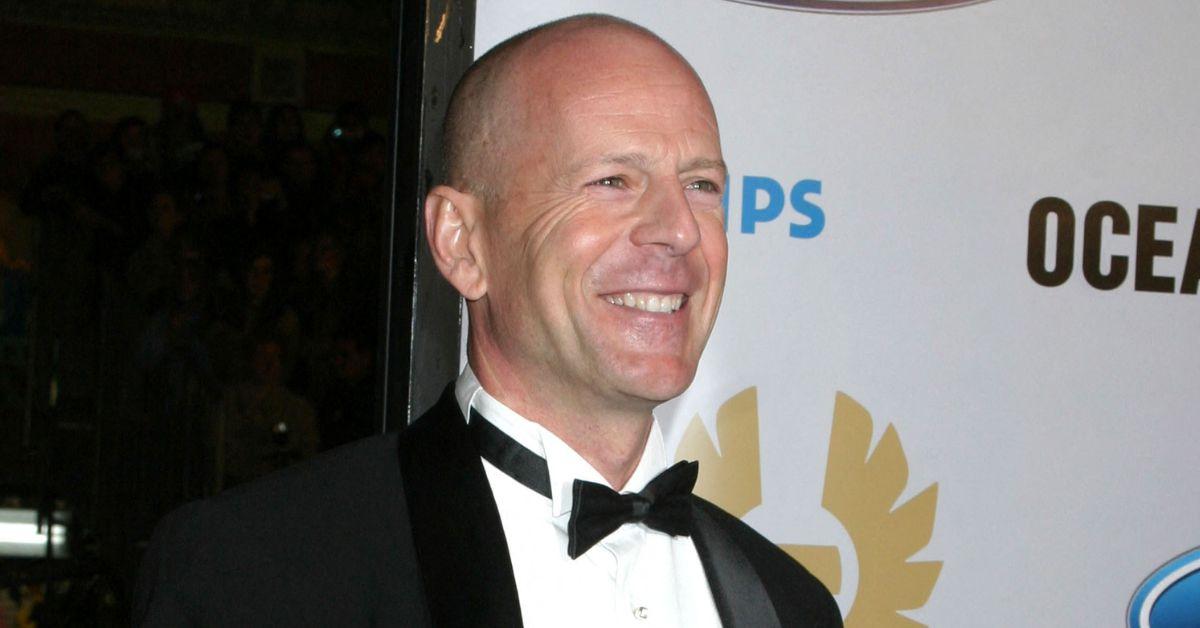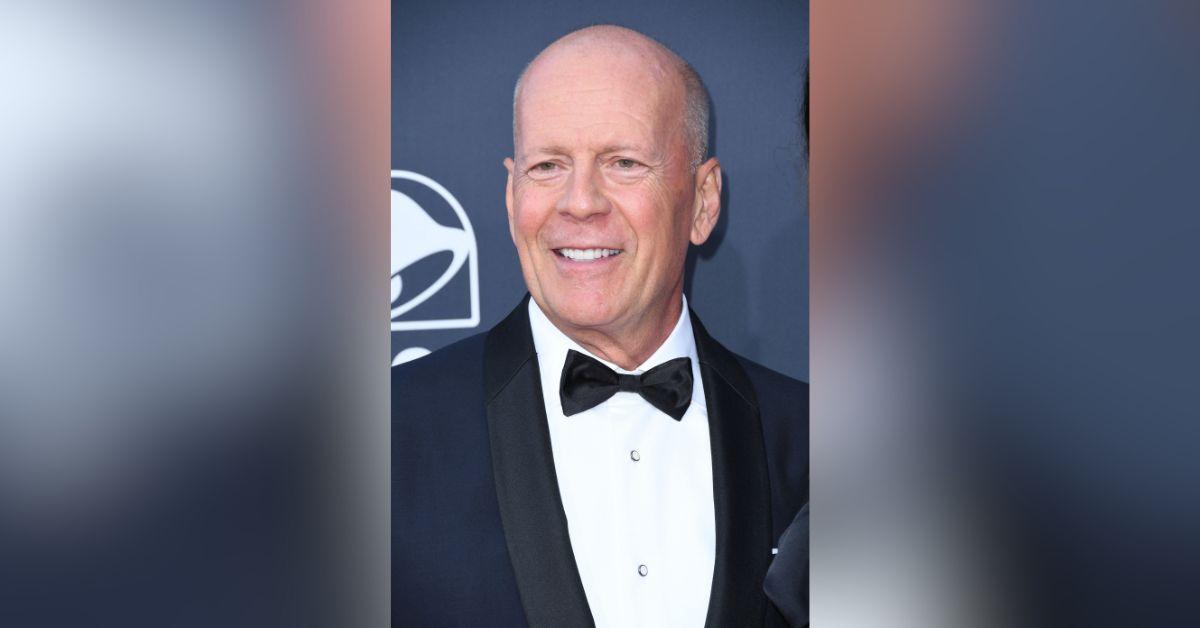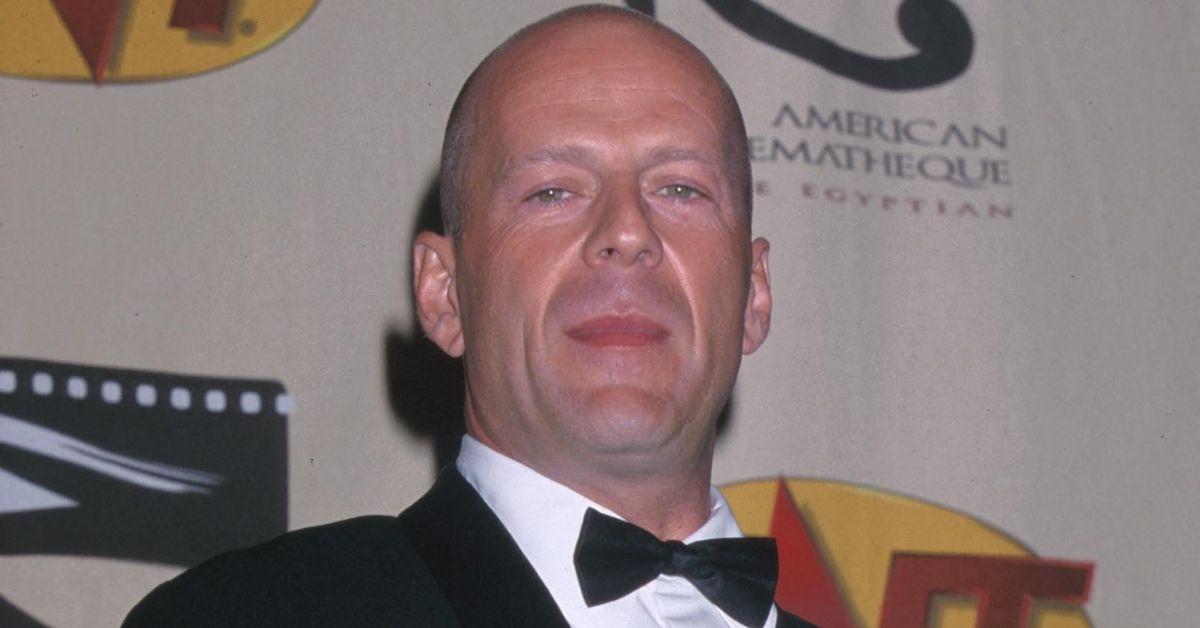 PHOTOS
PHOTOS5 Things to Know About Bruce Willis' Dementia Battle: Symptoms, His Current Condition and More

A report said Bruce Willis' condition has worsened over the three years since his initial aphasia diagnosis, which was later refined to frontotemporal dementia.
Sept. 20 2025, Published 12:05 a.m. ET
What Were the First Symptoms Bruce Willis Experienced Before His Dementia Diagnosis?

Bruce Willis is now living with a full-time care team amid his dementia battle.
Bruce Willis' health battle began when he was first diagnosed with aphasia.
In an Instagram post in March 2022, the Die Hard actor's family revealed the patriarch had been "experiencing health issues" and was diagnosed with aphasia, which was "impacting his cognitive abilities."
"As a result of this and with much consideration Bruce is stepping away from the career that has meant so much to him," the statement — signed by Emma HemingWillis, Demi Moore, Rumer Willis, Scout Willis, Tallulah Willis, Mabel Willis and Evelyn Willis — read.
They added, "This is a really challenging time for our family and we are so appreciative of your continued love, compassion and support. We are moving through this as a strong family unit, and wanted to bring his fans in because we know how much he means to you, as you do to him. As Bruce always says, 'Live it up' and together we plan to do just that."
What Was Bruce Willis Initially Diagnosed With?

Bruce Willis exhibited signs of impairment in multiple movies before his retirement.
Following the announcement of Bruce's health issue and retirement, the Los Angeles Times reported The Sixth Sense actor already showed signs and symptoms of impairment on movie sets.
According to the outlet, Bruce forgot his dialogue that he needed to recite his lines while listening through an earpiece. He also reportedly required a body double for gun scenes and looked "so lost."
Two crew members who worked with him on White Elephant said Bruce once asked, "I know why you're here, and I know why you're here, but why am I here?"
"It was less of an annoyance and more like: 'How do we not make Bruce look bad?'" one of the crew insiders said. "Someone would give him a line and he didn't understand what it meant. He was just being puppeted."
Bruce's wife shared further details about the symptoms on the ABC special Emma & Bruce Willis: The Unexpected Journey, which aired on Good Morning America in August.
"For someone who was very talkative and very engaged, he was just a little more quiet. And when the family would get together, he would kind of just melt a little bit," she told Diane Sawyer.
Emma recalled, "He felt a little removed, very cold. Not like Bruce, who is very warm and affectionate. To go to the complete opposite of that was alarming and scary."
When Was Bruce Willis Diagnosed with Frontotemporal Dementia?

The statement was shared on the Association for Frontotemporal Degeneration's official website.
- Bruce Willis' Language Skills Are Fading Due to Frontotemporal Dementia, But 'We Have a Way of Communicating With Him,' Wife Emma Heming Tearfully Shares
- Bruce Willis Health Battle Worsens: Actor Loses Ability to Speak, Read and Walk
- Bruce Willis Diagnosed With Frontotemporal Dementia, His Wife Emma Reveals: 'Condition Has Progressed'
Want OK! each day? Sign up here!
Nearly a year after the Willis family revealed his aphasia diagnosis, Emma issued a statement confirming Bruce's condition had "progressed" and was refined to frontotemporal dementia (FTD).
"Unfortunately, challenges with communication are just one symptom of the disease Bruce faces. While this is painful, it is a relief to finally have a clear diagnosis," she revealed in the February 2023 post.
The Association for Frontotemporal Degeneration reposted the announcement on its website, which stated FTD is a "cruel disease."
Can Bruce Willis' Dementia Be Cured or Treated?

They called FTD 'a cruel disease.'
According to the AFTD post, there are no treatments for FTD, "a reality that we hope can change in the years ahead."
"As Bruce's condition advances, we hope that any media attention can be focused on shining a light on this disease that needs far more awareness and research," Bruce's family shared.
They added, "Bruce always believed in using his voice in the world to help others, and to raise awareness about important issues both publicly and privately. We know in our hearts that – if he could today — he would want to respond by bringing global attention and a connectedness with those who are also dealing with this debilitating disease and how it impacts so many individuals and their families."
Has Bruce Willis' Condition Progressed?

FTD is the most common form of dementia for people under 60.
In July, an outlet reported that the actor has "become largely non-verbal and is reportedly experiencing motor difficulties, though no specific details about his mobility have been confirmed by his family in recent months."
Emma tearfully offered a similar update during her interview with Diane, saying Bruce's language skills "are going," but they have "learned to adapt."
"And we have a way of communicating with him, which is just a different, a different way," she said.
As she spoke about still seeing the "twinkle" in her husband's eye, Emma shared emotionally, "And it's just hard to see, because as quickly as those moments appear, then it goes. It's hard. But I'm grateful. I'm grateful that my husband is still very much here."


